Special Interest Groups

The School of Education is home to a number of special interests groups (SIGs). Our SIGs are composed of emergent groups of colleagues from across the school and sometimes across the university. They vary in focus and activity but share the ethos of welcome in if you are interested.
Most activities are for University of Nottingham colleagues only but where events occur that are open to all and advertised on our public engagement page.
For further details of a SIG or to join in its activities, please use links where provided, or contact the named convenors (click on photos for contact details).
Global Childhoods Research Group (GCRG)
The GCRG is an interdisciplinary group that brings together academic researchers, teacher educators, and postgraduate students to research and explore diverse constructions and experiences of childhoods (birth to 18) across the globe.
A particular focus of GCRG is on equality, diversity, and inclusion issues in childhood(s), especially concerning children living in underrepresented and/or marginalised contexts. GCRG is interested in research projects that disrupt dominant constructions of childhoods, moving the field beyond universal and western-centric knowledge about children and their worlds.
Co-convenors
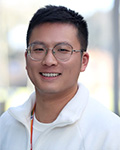 Dr Yuwei Xu
Dr Yuwei Xu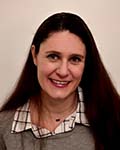
Dr Kerryn Dixon
Stay connected
The Higher Education Futures Research Group
The Higher Education Futures Research Group provides a collaborative space for critical research in the field of higher education with a focus on issues of social justice and equity.
Co-convenors
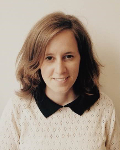
Dr Rita Hordósy
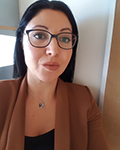
Dr Eugenia Katartz

Dr Manny Madriaga
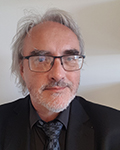
Dr Martin Myers
Stay connected
Languages Education and Literacies Research Group
The Languages Education and Literacies Research Group has a diverse range of members whose research interests reach from language acquisition to language for specific purposes, heritage languages, academic literacies, learner psychology, learner and teacher identity, second and heritage language pedagogy, multimodal social semiotics, literacies-based approaches to second/heritage language education, and discourse, genre, register and corpus studies in different educational and sociocultural contexts.
Co-convenors
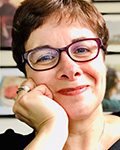
Dr Gabriela Zapata
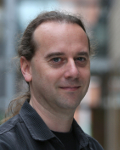
Dr Klaus Mundt
The Self-Reflexive Research Special Interest Group
The Self-Reflexive Research Special Interest Group brings together colleagues who are exploring and theorising researchers' lived experiences to advance educational and social change. Utilising methods such as self-study, memory work, autoethnography, and various artistic and narrative forms of inquiry, we create a supportive environment that facilitates feedback on new ideas and ongoing projects, enriching our learning discussions and innovative research practices.
Convenor
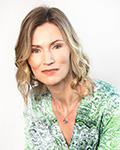
Professor Kathleen Pithouse-Morgan
Schools and Teachers Inquiry Group
The Schools and Teachers Inquiry Group (STIG) promotes and supports school- and teacher-facing inquiry. We focus chiefly on aspects of classroom practice across all subjects and phases of compulsory schooling and provide a supportive forum for both internal scholarship to support our teaching and external collaboration with colleagues in schools.
Convenor
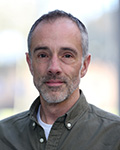
Dr Rupert Knight
Gender and Education Research Group
The Gender and Education Research Group addresses the complex intersections between gender and educational practices worldwide. Our group fosters meaningful dialogue and promotes research that addresses how gender and other intersecting identities—such as race, class, and sexuality—shape educational experiences, access, outcomes and employment in education. Our aim is to challenge stereotypes, champion diversity, and inspire progressive change in educational policy and practice.
Co-convenors
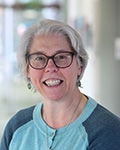
Professor Kay Fuller
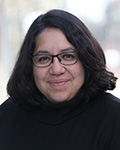
Dr Alicia Bowman
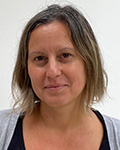
Dr Francesca Salvi
Post-Compulsory Education and Lifelong Learning Special Interest Group
The Post-Compulsory Education and Lifelong Learning (PCELL) Special Interest Group is a newly established community. PCELL aims to bring together researchers, educators, and practitioners interested in exploring and advancing the field of post-compulsory education and lifelong learning. We welcome members from diverse backgrounds and encourage the use of all research methodologies, including both qualitative and quantitative approaches, as well as various theoretical orientations. Our goal is to foster interdisciplinary collaboration, facilitate scholarly discussions, and promote innovative research that addresses the challenges and opportunities in adult education, vocational training, continuous professional development, and lifelong learning. Whether you are engaged in empirical studies, theoretical work, or practice-based research, we invite you to join our group to contribute to and benefit from a vibrant community dedicated to PCELL.
The key aims are to:
- share research, practice and learning relating to adult, post-compulsory and lifelong learning
- involve staff colleagues, PGRs and national and international honorary associates engaged in this field
- hold in person meetings, three times a year, but with hybrid option
Other possibilities include - writing retreats, reading groups and research symposiums.
We have links with the established Research Circle for Fostering Democracy, Debate and Dialogue (which grew out of the Centenary Commission on Adult Education, 2019).
Co-convenors
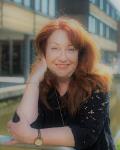
Dr Sharon Clancy
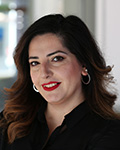
Dr Betul Babayigit